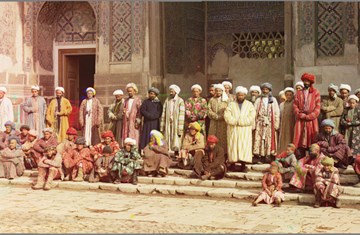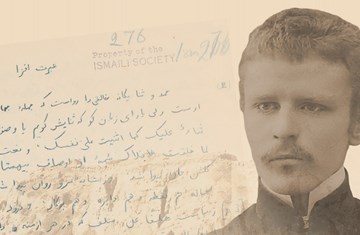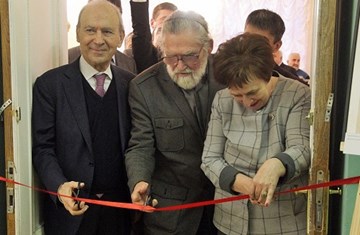Wladimir Ivanow exhibition opens in Mumbai
The exhibition Wladimir Ivanow and Modern Ismaili Studies opened in Mumbai on 19 January 2024, with the support of the South Asian Studies Unit at IIS. The original exhibition launched in Moscow in 2019, followed by a substantial overhaul by curators Esen Kaya and Dr Taushif Kara for the Aga Khan Centre Gallery. Bringing the exhibition to Mumbai holds a special significance, reminding the local community of the more than 30 years Ivanow spent in Mumbai while establishing the field of studies that later came to be known as Ismaili studies.
The exhibition provides historical contexts for events of the early 20th century and sheds light on how Ismaili history and thought impacted Ivanow’s life. Drawing on archival materials and photography from the period, the exhibition introduces visitors to the origins of modern Ismaili studies. The exhibition expounds on a work published by IIS in 2014, Fifty Years in the East: The Memoirs of Wladimir Ivanow, edited and annotated by Dr Farhad Daftary.

The president and vice president of the Ismaili Council for India, and the chairperson and honorary secretary for ITREB India join Ismaili leadership to inaugurate the Wladimir Ivanow exhibition. Image courtesy of ITREB India.
The exhibition was inaugurated by the national leadership of the Ismaili institutions in India. ITREB India Chairperson Asif Merchant welcomed guests and highlighted the vital contributions made by Wladimir Ivanow in establishing the field of Ismaili studies. In his keynote speech, the President of the Ismaili National Council of India, Asif Porbunderwala, reminded the audience of the value of heritage preservation and how heritage can be used to reconstruct Ismaili history. The leadership encouraged the audience to help institutions identify individuals who may possess such materials in order that they may be preserved with the support of the IIS. Hussain Jasani, Head of South Asian Studies at IIS, provided a brief overview of Ivanow’s life and highlighted some major episodes from his time in Kolkata, Mumbai, and Karachi. He reminded the audience that IIS was established by His Highness the Aga Khan in 1977 to promote scholarship and learning about Muslim societies in general and Ismailis in particular. He added that such research, however, cannot be carried out without primary sources, reinforcing Ivanow’s invaluable contribution in locating and publishing critical primary sources and their translations.

Led by GPISH graduates and ITREB staff, visitors learn more about Wladimir Ivanow’s travels through Central and South Asia. Image courtesy of ITREB India.
GPISH and STEP graduates affiliated with ITREB India were coached to serve as tour guides. The inauguration was attended by over 60 guests, including national, regional, and local Ismaili leadership as well as senior professionals from ITREB and the Ismaili National Council for India. More than 300 visitors benefited from the exhibition on the first day of the exhibition. Over the weekend, the exhibition attracted over 400 visitors from various parts of Greater Mumbai. Secondary Taʿlim students from Ismaili religious education centres were also brought to the venue to benefit from the exhibition.

Hussain Jasani, head of the South Asian Studies Unit at IIS, describing the exhibition to national leadership of the Ismaili community. Image courtesy of ITREB India.



